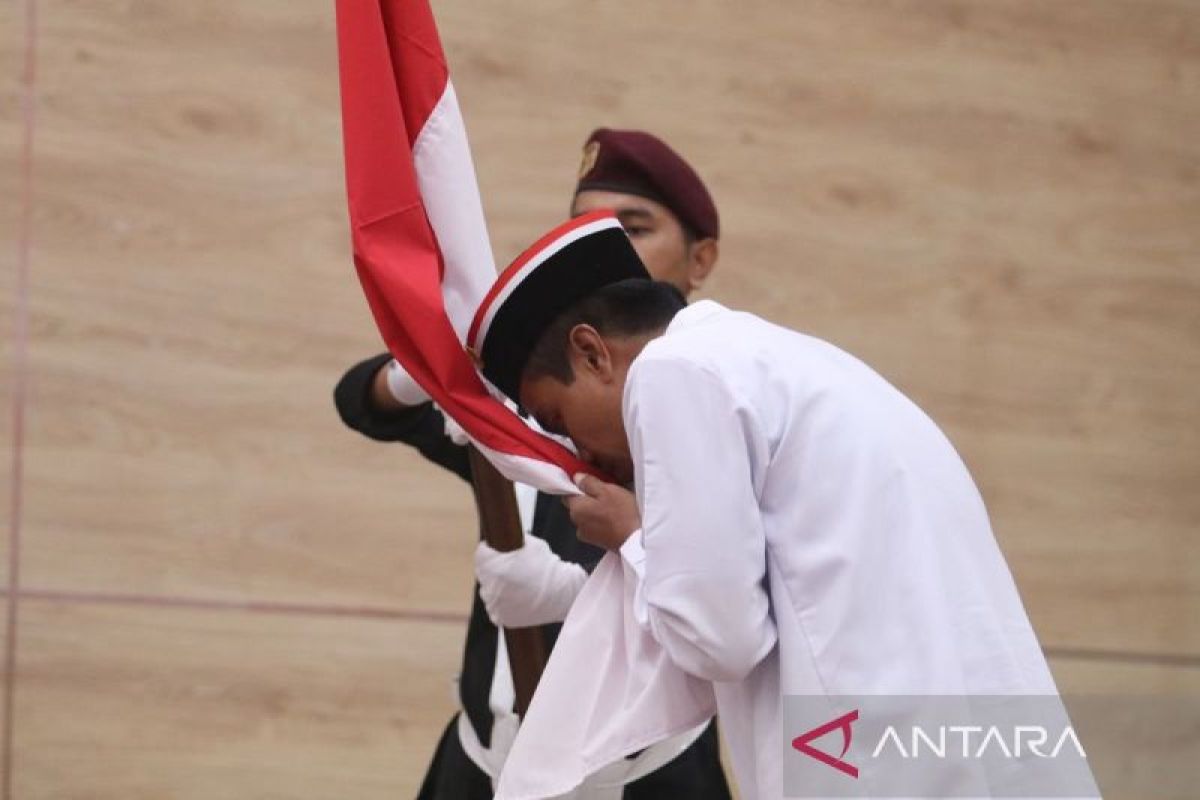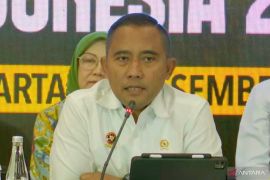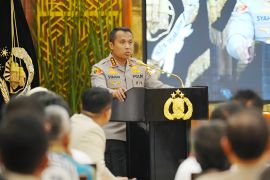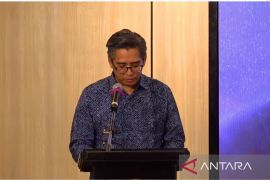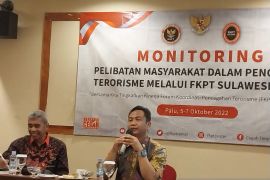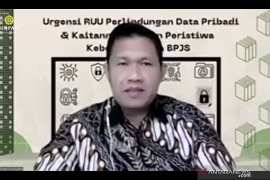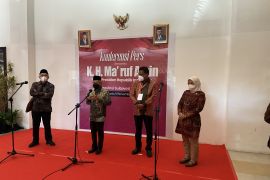A regional action plan for the same matters is also needed, as talks on the prevention and handling of terrorism are still considered only national issues.Jakarta (ANTARA) - Terrorism remains a challenge as a transnational organized crime for the new government of Indonesia in the 2024-2029 period.
Under the leadership of Prabowo Subianto and Gibran Rakabuming Raka, the new government must map the challenges of terrorism handling precisely, so that they can be anticipated and dealt with in a measurable manner.
In the Global Terrorism Index 2024 of the Institute for Economics and Peace (IEP), Indonesia is currently placed 31st, or up seven ranks, from the previous index.
This index could become capital for the Prabowo-Gibran government to continue the good performance of the current government led by Joko Widodo-Ma'ruf Amin along with improving its performance in eradicating terrorism in the future.
In its vision and mission document for the 2024 Presidential Election, Prabowo and Gibran have also included the issue of terrorism, namely preventing terrorism and radicalism action through reforms in the security sector, improving security regulations, reorienting education of law enforcement officers, and carrying out comprehensive socio-cultural campaigns.
Prabowo and Gibran are also seeking to bolster synergy between parties in the field of defense and security in preventing and handling acts of terrorism.
Challenges
Deputy of Enforcement and Capacity Building of the National Counter-Terrorism Agency (BNPT) Police Inspector General Ibnu Suhaendra explained that repatriation of Indonesian citizens associated with Foreign Terrorist Fighters (FTF) is one of the challenges that the Prabowo-Gibran government has to face.
Repatriation is deemed necessary, considering the existence of a regulation that regulates this matter, namely the Decree of Coordinating Minister for Political, Legal, and Security Affairs Number 90 of 2023 on the Task Force for Handling Indonesians Abroad Associated With FTF.
Repatriation is considered necessary, especially for Indonesians, who are abroad and are associated with the FTF, such as in Syria.
According to the BNPT data, Indonesia is one of the three countries whose citizens are still living in refugee camps in Syria, while several other countries, such as Uzbekistan, Kyrgyzstan, Russia, the United Kingdom, the United States, Australia, Malaysia, Morocco, and France, have repatriated their citizens.
The repatriation of Indonesians in Syria, for example, those in the Al-Hawl and Al-Roj camps, must be a serious concern for Prabowo and Gibran, so that children there can be prevented from getting exposed to radicalism or becoming combatants.
If they are already exposed to radicalism, then the government must include them in deradicalization programs, such as the one at the Handayani Center, Jakarta, which is already running and carried out by BNPT along with the Ministry of Social Affairs.
Furthermore, Prabowo and Gibran must pay attention to children and women involved in acts of terror. Based on the BNPT data, currently, 60 women and 20 children are involved in terrorism.
The BNPT also recorded that in the 2020-2023 period, 80 people aged 18-24 years were arrested for their involvement in terrorism, while during the 2000-2023 period, 65 court decisions were related to female convicts involved in terrorism.
The handling of children and women involved in terrorism is essential, considering that their involvement has become a new trend in terror acts since the emergence of the terrorist group ISIS.
Furthermore, the Prabowo-Gibran government must pay attention to former terror convicts or recidivists and deradicalization efforts.
This issue needs to be addressed, as terrorist recidivists remain a threat, with the potential of committing terror acts again, as had occurred in the Astana Anyar bomb incident, Bandung City, West Java, on December 7, 2022.
However, there are still numerous challenges in the deradicalization efforts for terror convicts or people exposed to it.
According to the BNPT data, out of 1,591 people targeted for deradicalization, only 658 people participated in the program. The remaining 364 people have not participated and require a personal approach, 422 are unwilling to participate in deradicalization, and 147 are still unsure about their participation.
The other challenge that necessitates attention of the next government is the trend of terrorism funding and terrorism in cyberspace that includes the use of technology.
The BNPT once found a case of jihadist propaganda through a video game, namely in the form of the ISIS flag. To this end, it is deemed important for the next government to be wary of the spread of radicalism in cyberspace.
An international security expert from the University of Indonesia Ali Abdullah Wibisono warned the Prabowo-Gibran government of the potential for the emergence of new ideologies related to jihadism in Indonesia.
Apart from that, deradicalization should be focused on certain figures. Furthermore, international, cross-country, and cross-actor partnerships need to receive attention and be strengthened.
Moreover, there is the need to pay attention to funding of terrorist activities, as terrorists are able to combine fund raising directly and online. Furthermore, the recovery of victims of terror acts should be a matter of concern for the Prabowo-Gibran government in future.
Repatriation and deradicalization are also challenges that must be faced by the next government. The secretive corners of encrypted cyberspace should also be anticipated, so that terrorists' movements in cyberspace can be handled.
Senior researcher of non-governmental organization The Habibie Center, Johari Efendi, also underscored the need for the next government to pay attention to cyberspace.
Furthermore, it is deemed important for the National Action Plan for Preventing and Combating Violence-Based Extremism that Leads to Terrorism (RAN PE) to receive attention. Moreover, the RAN PE, which is based on Presidential Regulation Number 7 of 2021 will end in December 2024, thereby necessitating the creation of the next RAN PE.
A regional action plan for the same matters is also needed, as talks on the prevention and handling of terrorism are still considered only national issues.
There is also the need to address the issue of terrorism recidivists who are respected, as they are unconditionally discharged from prison or have not undergone deradicalization. This is because their supporters consider them to be at the highest level.
Moreover, based on the BNPT data, for instance, in April 2024 alone, 17 terror convicts had finished serving their sentences. Of the 17 people, some 52.9 percent were free on parole, while 47.1 percent were unconditionally free.
Those various challenges in handling terrorism must receive attention from the Prabowo-Gibran government, so that effective and optimal policies can be made and their vision and mission can be realized.
Related news: RI suggests three approaches for handling child victims of terrorism
Related news: Optimizing seat at the FATF to combat transnational crimes
Translator: Rio Feisal, Raka Adji
Editor: Arie Novarina
Copyright © ANTARA 2024
